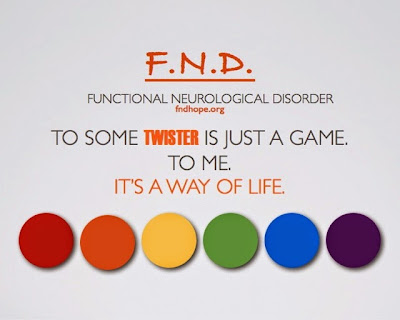
What are the symptoms of functional movement disorder? A functional neurological disorder (FND) is a condition in which patients experience neurological symptoms such as weakness, movement disorders, sensory symptoms and blackouts. The brain of a patient with functional neurological symptom disorder is structurally normal, but functions incorrectly. Doctors tend to categorise these symptoms according to their medical frame of reference, but often fail.

They can, however, be treated. FND and functional symptoms surprisingly common but can be difficult for patients and health professionals to understand. Functional Neurological Disorder ? Many terms have been used to describe FN from hysteria to conversion disorder.
As knowledge of this condition has increase it is now understood that FND stems from. For a long time, FND lacked a medical home, slipping through the great divide between neurology and psychiatry in Australia. What is FND or conversion disorder ? Patients with a functional neurological disorder have symptoms of altered voluntary motor, cognitive, or sensory function that are not compatible with any recognized neurological condition. In my case, I have severe muscle movements, often in response to stress and anxiety. It is sad when this diagnosis is thrown around bc they can’t find the correct answer the first time.

Background Patients with functional motor disorder (FMD) including weakness and paralysis are commonly referred to physiotherapists. There is growing evidence that physiotherapy is an effective treatment, but the existing literature has limited explanations of what physiotherapy should consist of and there are insufficient data to produce evidence-based guidelines. Medically unexplained symptoms are common, accounting for up to of all GP appointments and half of all new visits to hospital clinics in the UK.
We aim to address this issue. Possible causes of medically unexplained symptoms. Many people with medically unexplained symptoms , such as tiredness, pain and heart palpitations, also have depression or anxiety. Doctors Bullock and Lockman discussed this little known but. This group has been set up by two women named.

In this article, I argue that there are multiple opportunities during routine assessment of a patient with a functional disorder for the neurologist to take the lead with. If you’re a person who lives with a functional neurological disorder (FND), then you may be able to resonate with some of these lessons. If you’re someone who lives with other chronic illnesses, I hope there is something here that will make you feel a little less alone in this big world.
ICD-9-CM conversion, index and annotation crosswalks, DRG grouping and more. Common symptoms of the disorder include sudden blindness, paralysis, loss of the voice, trouble coordinating movements (ataxia), loss of the sense of smell (), loss of sense of touch, or tingling in the extremities. It falls under the classification of ‘somatic symptom disorder ’ according to the DSM-V, a change from the DSM-IV which included a large cluster of disorders known as somatoform disorders that are also. Conversion disorder is also known as “hysterical neurosis”, “conversion type”, or “ functional neurological symptom disorder ”. Health professionals sometimes call these disorders ‘medically unexplained’, psychosomatic or somatisation. The term conversion disorder has been retained in the DSM-5.
There have been many articles highlighting differences and similarities between complex regional pain syndrome (CRPS) and functional neurological disorders (FND) but until now the discussions have often been adversarial with an erroneous focus on malingering and a view of FND as ‘all in the mind’. Objectives To establish the incidence and long-term outcomes (up to years) of children presenting to a University hospital paediatric neurology service with symptoms due to functional neurological disorder (FND) with particular reference to occurrence of FND or similar symptoms in adulthood. Methods Retrospective chart review to determine characteristics of the original paediatric FND. But, in the parallel universe of functional neurological disorder (FND), it does.
This is not at all a criticism of the conduct of the study itself, nor the. Despite its frequency in normal medical practice, it has occupied an unenviable twilight zone in terms of understanding its pathophysiology. Though patients with FND present with a wide variety of symptoms, FM PNES, and functional weakness may be viewed as overlapping conditions. FNS include functional movement disorders and tremors, idiopathic non-epileptic seizures, drop-attacks. We suggest that the term “ functional neurological disorder ,” as a diagnosis for.
FND Australia - The Australian FND network. Welcome to the Australian FND network.
No comments:
Post a Comment
Note: Only a member of this blog may post a comment.